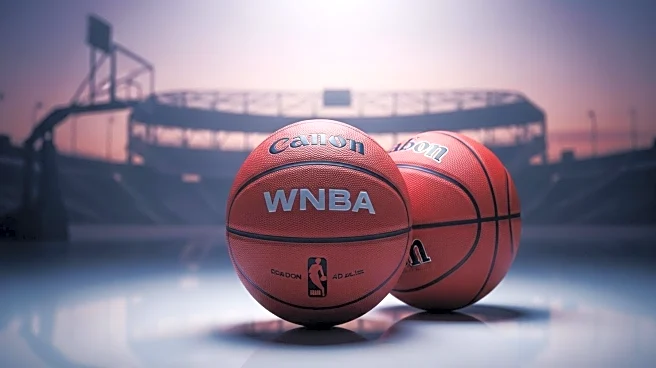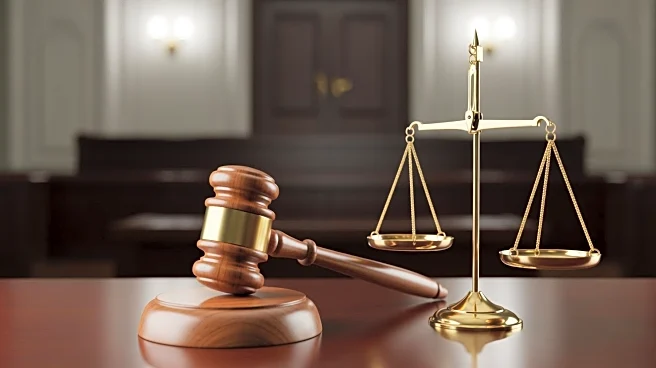What's Happening?
Caitlin Clark and Sophie Cunningham, both prominent figures in the WNBA, have voiced their support for Napheesa Collier's recent criticism of the league's leadership. Collier, during an exit interview, expressed dissatisfaction with WNBA Commissioner Cathy Engelbert, stating that the league is currently under poor leadership. This criticism comes at a crucial time as the WNBA Finals approach and the collective bargaining agreement (CBA) is set to expire at the end of the month, raising concerns about a potential lockout. Collier highlighted the financial disparities faced by players like Caitlin Clark, Angel Reese, and Paige Bueckers, who generate significant revenue for the league but earn relatively low salaries in their initial years. Engelbert responded by emphasizing her commitment to the players and the league's future, despite differing perspectives.
Why It's Important?
The criticism from high-profile players like Collier, Clark, and Cunningham underscores growing tensions within the WNBA regarding leadership and player compensation. As the CBA expiration looms, the potential for a lockout could disrupt the league and impact its growth trajectory. The players' call for better leadership and fair compensation reflects broader issues of equity and sustainability in women's sports. The outcome of these discussions could set a precedent for how women's professional sports leagues address player concerns and negotiate labor agreements, potentially influencing other leagues and sports organizations.
What's Next?
With the CBA set to expire soon, negotiations between the WNBA and its players are likely to intensify. The league's response to the players' demands for better leadership and compensation will be critical in determining whether a lockout can be avoided. Stakeholders, including team owners, sponsors, and fans, will be closely monitoring the situation, as the resolution could impact the league's operations and public perception. The players' unified stance may also lead to increased advocacy for systemic changes within the league.
Beyond the Headlines
The current situation in the WNBA highlights broader societal issues related to gender equity in sports. The players' demands for fair compensation and effective leadership reflect ongoing challenges faced by women athletes in achieving parity with their male counterparts. This situation could spark further discussions about the value and recognition of women's sports, potentially leading to long-term shifts in how women's leagues are structured and managed.









